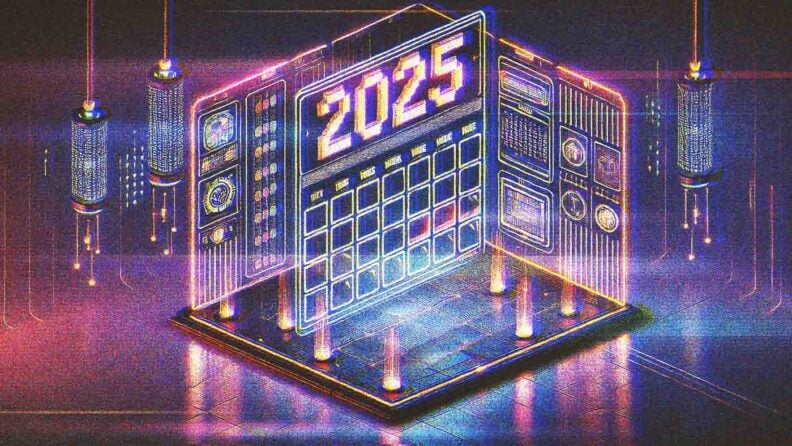2025 will be defined by the emergence of enterprise artificial intelligence agents. Capable of handling complex, nuanced business processes, these intelligent systems represent more than technological innovation—they are a fundamental reimagining of how we work.
Gartner predicts that by 2028, 33% of enterprise software applications will include agentic AI, up from less than 1% in 2024.
It is a huge opportunity; one manufacturer claims that deploying AI models to analyze sensor data from machinery reduced maintenance costs by 20% and grew production uptime by 15%.
To get to that point, however, several steps need to be taken. As we head into the new year, we have identified three areas businesses need to focus on and three they need to move away from to be in the best position to harness the potential of the AI agentic era.
Where Businesses Should Focus
- Take a strategic, long-term view: While immediate efficiency gains are appealing, the real value lies in their potential to redefine traditional human-delivered services—like legal consultancy or business development roles—into dynamic software capabilities. That requires vision, ambition, and, most importantly, commitment. There will undoubtedly be missteps; 30% of GenAI proof of concepts are predicted to be abandoned in the next year. But we are talking about a transformation to rival that of electrification; to realize AI’s full potential, businesses must stay the course.
- Think big: The AI revolution will have a tangible and impactful influence on our organizational structures and operational models. This shift will see the breaking down of traditional departmental silos, greater flexibility and adaptability to operational processes, and the deployment of intelligent AI agents across a range of business functions. This can only be achieved by organizations that are prepared to think big; if they focus only on benefits such as improving efficiency or productivity, what they achieve will be only a small percentage of what they could have done. This is a change in mindset, away from “How do we implement AI” and towards “How do we reimagine our entire approach to work”.
- Scale means success: Transformative technologies democratize access. Electrification brought industrial-scale power to businesses of all sizes; AI will bring advanced cognitive capabilities to a range of organizations. To achieve that, companies need to scale their deployments. Consider investing in off-the-shelf solutions that can be tweaked to support use cases rather than building from the ground up. The focus should not be on creating proprietary solutions but on being able to scale AI across hundreds, if not thousands, of workflows.
What Businesses Should Move Away From
- Organizational resistance and misunderstanding: Companies that view AI as a simple technological tool rather than a comprehensive business transformation strategy will miss the opportunities on offer; they will certainly see incremental benefits but will not unlock AI’s true potential. The risks include maintaining outdated organizational structures, failing to develop internal AI literacy, and not creating the adaptive infrastructures necessary to maximize AI's potential.
- The myth of AI replacing workforces: Societies going through revolutionary shifts like electrification have in the end, and against strong predictions, found themselves in a place where human labor is needed just as much or even more than before. It has become a huge cliché, but it is true when people say that AI won’t take jobs; people who know how to use AI will. There will be work that only humans can do, and it will be of higher value than it is today. The risk is that people focus on AI replacing employees and do not take the necessary steps to prepare themselves or their organizations so that AI as colleagues can be fully and effectively integrated.
- Using AI as a catch-all term: Just as there are different types of cloud computing, we have different types of AI, all with their own strengths, weaknesses, and applications. We are very much in the foothills of the technology, and still finding out what works and what doesn’t. The risk is that people will see one type of AI failing to deliver and be put off from other deployments that have much greater chances of success. For instance, AI agents are becoming sophisticated enough to handle domain-specific tasks, learning and adapting to each business’ unique context. This is much more sophisticated than what used to be labeled AI, but what we would now consider traditional automation, which was more suited to standard context and decisions.
The AI Agentic Era Begins
Like any technological revolution, the full impact of AI will take several years to be felt. What 2025 will be is the first step in the agentic era, which will reimagine how we work. We’re going to see traditional human-delivered services redefined as software features, thanks to the ability of enterprise AI agents to create optimized, streamlined workflows.
Companies need to think strategically and shift their mindset from how they use AI to how they reimagine their approach to operating. Only by doing that will they benefit from the truly transformative impact of AI agents.
Subscribe to The CTO Club’s newsletter for more AI insights.




